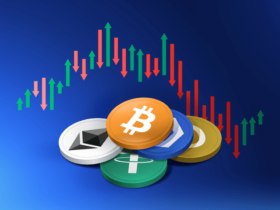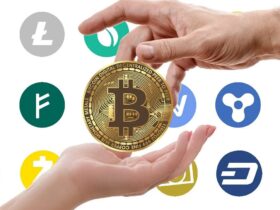Coinbase Classifies XRP and Shiba Inu as Money and Store of Valur Assets: On September 23, 2024, Coinbase made a groundbreaking announcement that has sent ripples through the cryptocurrency community. The prominent crypto exchange has officially classified XRP and Shiba Inu (SHIB) as currencies, recognizing their potential to function as money and store of value assets. This move is part of Coinbase’s broader effort to categorize digital assets based on their uses, and it places XRP and SHIB alongside other well-known cryptocurrencies like Bitcoin (BTC) and Litecoin (LTC).

Coinbase’s decision to classify XRP and SHIB as currencies is significant for several reasons. Firstly, it underscores the growing acceptance of these digital assets as legitimate forms of money. Despite the volatile nature of the crypto market, Coinbase believes that XRP and SHIB possess the fundamental characteristics of money. These include serving as a measure of value, a means of storing value, and a means of payment. This classification helps to establish XRP and SHIB as viable options for transactions and as stores of value.
The timing of this announcement is particularly noteworthy given the ongoing legal battles surrounding XRP. Ripple, the company behind XRP, has been embroiled in a legal dispute with the U.S. Securities and Exchange Commission (SEC) since 2020. The SEC had filed a lawsuit against Ripple, claiming that XRP was a security. However, a recent decision by a federal judge established that XRP is not a security but can be sold as part of an investment contract in specific scenarios. This ruling brought some clarity to XRP’s legal status, but uncertainties remain. Coinbase’s classification aligns with the earlier stance taken by the U.S. Financial Crimes Enforcement Network (FinCEN), which categorized XRP as a virtual currency as early as 2015.
Shiba Inu, on the other hand, has not faced the same level of regulatory scrutiny as XRP. The SEC has not labeled SHIB as a security, but the broader market has been affected by the SEC’s actions against other cryptocurrencies. The SEC’s acknowledgment in its lawsuit against Binance that crypto assets are “merely computer codes” and not inherently securities further complicates the regulatory landscape. Despite these challenges, Coinbase’s recognition of SHIB as a currency highlights its potential as a digital asset designed to function as money.
Coinbase’s classification of XRP and SHIB as currencies is part of a larger trend within the crypto industry. The exchange has also categorized other cryptocurrencies, such as Bitcoin, Dogecoin (DOGE), Bitcoin Cash (BCH), Stellar Lumens (XLM), Zcash (ZEC), and Dash (DASH), as currencies. This move indicates that Coinbase views these tokens as possessing the key characteristics of money, including medium of exchange, acceptability, unit of account, store of value, and limited supply. These characteristics are inherent in XRP and SHIB, making them suitable for use in transactions and as stores of value.
The classification of XRP and SHIB as currencies is expected to have several implications for the crypto market. For one, it could boost the adoption of these digital assets as legitimate forms of money. This recognition by a major exchange like Coinbase lends credibility to XRP and SHIB, potentially attracting more users and investors. Additionally, it could influence other exchanges and financial institutions to adopt similar classifications, further legitimizing these assets.
However, the volatile nature of the crypto market remains a concern. While XRP and SHIB are recognized as currencies, their value can fluctuate significantly. This volatility poses challenges for their use as stable stores of value. Despite this, enthusiasts are confident that the volatility issue will eventually stabilize, making these assets more reliable as stores of value in the future.
The ongoing legal battles and regulatory uncertainties surrounding cryptocurrencies add another layer of complexity. The case between the SEC and Coinbase continues to unfold, with the SEC recently seeking more time for fact discovery. The current deadline is set for October 18, 2024, but the SEC has requested an extension until February 18, 2025. These legal developments could impact the regulatory landscape for cryptocurrencies, including XRP and SHIB.









Leave a Reply